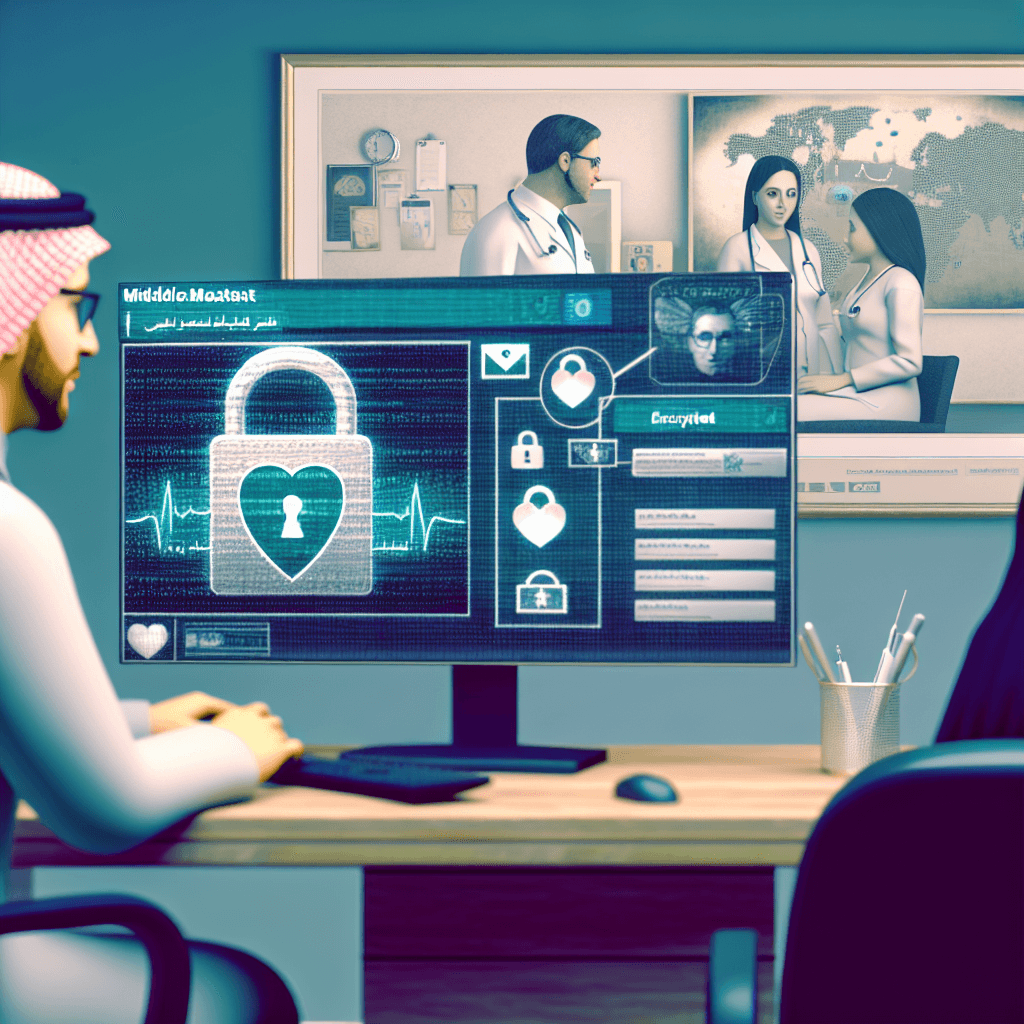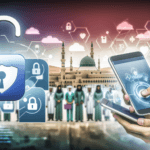Explore the growth of secure messaging in the Middle East healthcare market, enhancing communication and data privacy.
Middle East Secure Messaging in Healthcare Market

Table of Contents
Middle East Secure Messaging in Healthcare Market

The healthcare industry in the Middle East is undergoing a significant transformation, driven by technological advancements and the increasing need for efficient and secure communication systems. Secure messaging in healthcare is pivotal, especially in a region characterized by its rapid economic development and technological adoption. This article explores the current landscape, challenges, opportunities, and future prospects of the secure messaging market in the Middle East’s healthcare sector.
Overview of Secure Messaging in Healthcare
Secure messaging in healthcare refers to the use of encrypted communication tools that allow healthcare providers to exchange patient information, discuss treatment plans, and handle emergencies in a secure manner. These tools are designed to comply with health regulations, ensuring that all patient data transmitted remains confidential and protected against unauthorized access.
Current Landscape of Secure Messaging in the Middle East
The Middle East has seen a surge in the adoption of digital health solutions, including secure messaging systems, due to several factors:
- Government Initiatives: Many Middle Eastern countries have launched digital transformation initiatives that include healthcare. For example, Saudi Arabia’s Vision 2030 and the UAE’s Vision 2021 emphasize the importance of digital health.
- Increasing Healthcare Expenditure: Countries in the region are increasing their healthcare budgets, part of which is directed towards modernizing IT infrastructure.
- Rising Demand for Telemedicine: The COVID-19 pandemic has accelerated the adoption of telemedicine, necessitating secure communication channels to handle sensitive medical information.
Despite these advancements, the region faces unique challenges that impact the adoption of secure messaging systems in healthcare.
Challenges in Adoption
Several obstacles hinder the widespread implementation of secure messaging solutions in the Middle East’s healthcare sector:
- Regulatory Variations: The Middle East comprises various countries with differing regulatory environments, making it challenging to implement a one-size-fits-all solution.
- Cybersecurity Concerns: With increasing cyber threats, healthcare providers are cautious in adopting new technologies that might expose sensitive data.
- Resistance to Change: There is often resistance to changing traditional methods of communication, such as phone calls and faxes, to digital methods among healthcare providers.
Opportunities for Growth
Despite these challenges, there are significant opportunities for the growth of secure messaging in the healthcare sector of the Middle East:
- Integration with Existing Systems: Secure messaging solutions that can seamlessly integrate with existing healthcare IT systems (like EMRs and EHRs) are likely to see higher adoption rates.
- Partnerships and Collaborations: Collaborations between international tech giants and local healthcare providers can facilitate the transfer of knowledge and technology, enhancing the capabilities of secure messaging systems.
- Customization and Localization: Solutions tailored to meet the specific needs and languages of the Middle East region can improve user acceptance and effectiveness.
Case Studies
Several successful implementations of secure messaging systems in the Middle East provide insights into their benefits and applicability:
- Case Study 1: Saudi Arabia’s National Health Information System – This system integrates secure messaging to connect healthcare providers across the country, improving the coordination of care and patient outcomes.
- Case Study 2: Telemedicine in the UAE – During the COVID-19 pandemic, the UAE implemented a secure messaging system for telemedicine services that allowed safe and efficient patient-doctor interactions.
Future Prospects
The future of secure messaging in the Middle East’s healthcare market looks promising. With ongoing digital transformation initiatives, increasing awareness about the benefits of secure communication, and continuous improvements in cybersecurity, the adoption of secure messaging systems is expected to rise. Innovations such as AI and machine learning could further enhance the capabilities of these systems, making them more efficient and user-friendly.
Conclusion
The secure messaging market in the Middle East’s healthcare sector is poised for significant growth. Driven by technological advancements, government initiatives, and a growing need for efficient healthcare delivery, secure messaging systems are becoming increasingly vital. While challenges such as regulatory complexities and cybersecurity concerns exist, the opportunities for development and implementation of advanced secure messaging solutions are vast. As the region continues to embrace digital health, secure messaging will play a crucial role in transforming healthcare communication, ensuring confidentiality, and improving patient care across the Middle East.
In conclusion, stakeholders in the healthcare and IT sectors must collaborate to overcome existing barriers and leverage opportunities to enhance the adoption and effectiveness of secure messaging systems. The future of healthcare in the Middle East depends on the successful integration of these technologies, promising a more connected, secure, and efficient healthcare ecosystem.








